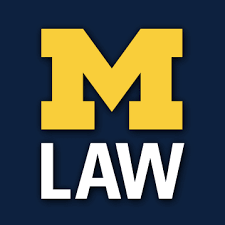Corporate Capitalism and Democracy @ U. Michigan Law
- Sarah Stookey
- Sep 17, 2018
- 2 min read
Updated: Sep 20, 2018
2nd year students, University of Michigan Law School
In the Talking Capitalism story of capitalism democratic authority is paramount. Government oversight of the conduct of business and the economy derives from We the People: in the diagram we designate "Democracy" (authority) as distinct from - and superior to - "Government" (apparatus).
Democratic authority is exercised in terms of the power and responsibilities of government. Power to define and maintain property rights, regulate processes for producing and selling goods and services, collect taxes, etc.. Responsibilities to use its power and resources (including tax revenues) to protect and advance the people's interests through protection of civil rights, provision of tools and conditions for advancement (education, health, recreation), defense of life, etc..
Corporate charters are important examples of how democratic power is exercised in capitalism. Within the larger system of publicly-granted property rights, the ability to sell shares to the public and to offer limited liability protections to shareholders requires government approval. Insistence that the private interests of corporations should be subordinate to public interests is deeply rooted, reflected in U.S. colonists' rejection of the King's grants of charters to exploitative allies. The rationale is moral and practical: when corporations act with a narrow focus on private gains they are likely to take excessive financial risks which may create widespread economic instability and loss.
The legal scholars A. Berle and G. Means, writing in the midst aftermath of the Wall Street crash of 1929 and the Great Depression that followed, emphasized the importance of public oversight of corporations, including the state's close attention to granting of charters and regulations to protect shareholders' rights (The Modern Corporation and Private Property, 1932. See a 1933 three-page review of the book published in the Indiana Law Journal). That period of crisis prompted new regulatory requirements for corporations.
More recent crises (2002, 2008) have led to similar efforts by government to protect public interests through regulation of corporate activity (including financial reporting requirements). See, for example, the Sarbanes-Oxley Act of of 2002 and the Dodd-Frank Act of 2010. In 2018 the Economic Growth, Regulatory Relief, and Consumer Protection Act revised key provisions of the Dodd-Frank Act.
How government uses its power to affect corporate activities is a result of political forces that change over time. The fact of democratic authority over corporations is a longstanding assumption.

Talking Capitalism @ Dominick's, Ann Arbor MI, 9/12/18




















Comments